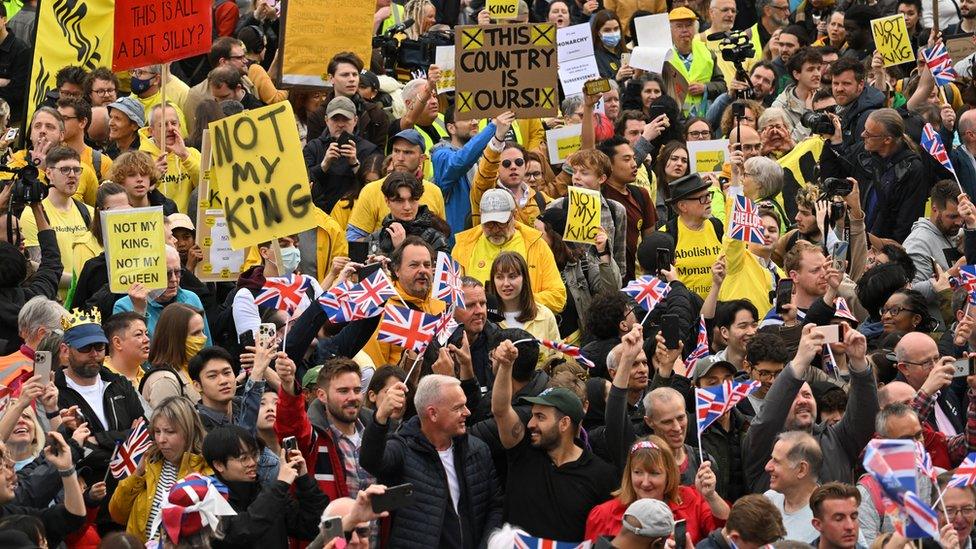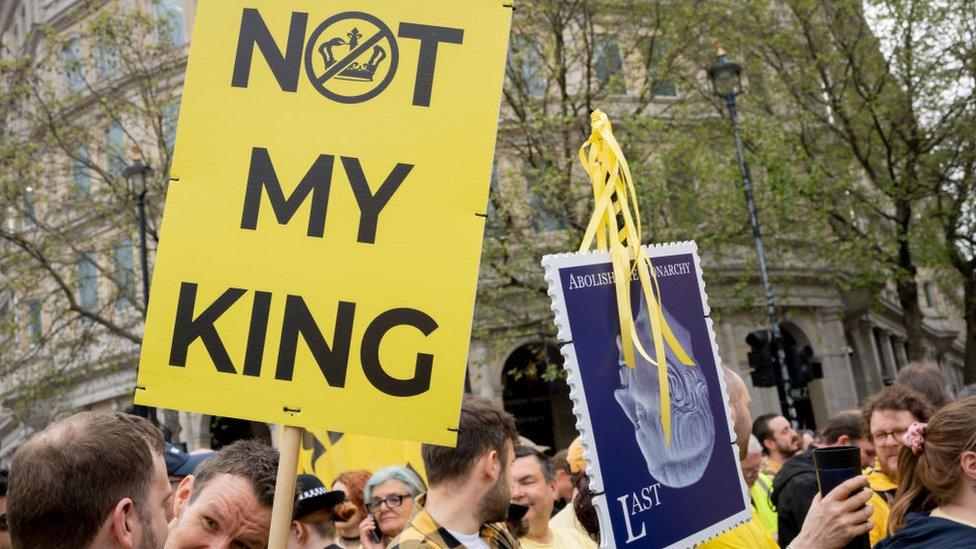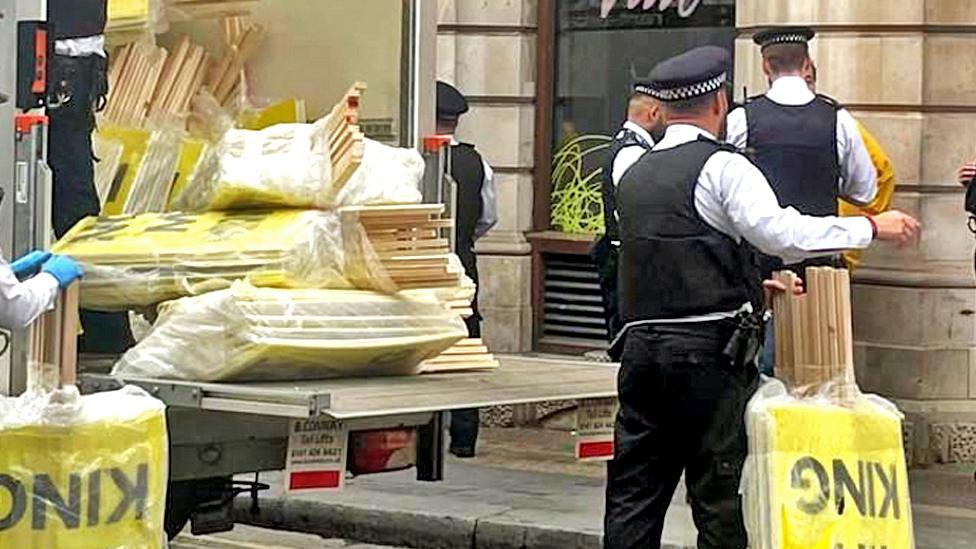Coronation protests: MPs to examine policing of protesters
- Published

The Metropolitan Police's treatment of anti-monarchy protesters at King Charles' Coronation will be examined by MPs.
A committee will meet next Wednesday to discuss the protests, including the arrests of six people from anti-monarchy group Republic.
Sir Mark Rowley, head of the Met, has defended his officers and said there was a "concerning" threat to the event.
But concerns have been raised about the use of a new law by frontline officers.
The group of six protesters, including the chief executive of Republic, Graham Smith, was arrested on the day of King Charles III's coronation under a controversial new law - the Public Order Act 2023.
They were arrested on suspicion of going equipped to lock-on - when a person attaches themselves to an object so that they cannot be easily moved.
Making going equipped to lock on an offence was one of a number of changes to the Public Order Act, passed just days before the Coronation week.
The six protesters were held for almost 16 hours, later bailed and on Monday told that no further action would be taken, external against them.
Mr Smith has said he is considering legal action over the arrests, which he said followed four months of conversations with the Met about Republic's protest plans.
In total, 64 people were arrested in London during the Coronation policing operation. Police said 52 of these related to concerns people were going to disrupt the event. Four people have so far been charged.
Amongst the arrests were three women's safety volunteers who were detained in the Soho area at around 2am on Saturday, and police said they seized a small number of rape alarms. They were released without charge.
Westminster City Council said on Tuesday evening it had requested an apology from the police to the Night Star volunteers, who hand out rape alarms, and would continue to work with the force "to learn from this unfortunate incident".
Sir Mark said the Met had had growing concerns that protesters would use rape alarms, possible lock-on devices, loud hailers and vandalise monuments during the procession.
"Clearly, this would not only have been unlawful, but also extremely dangerous," he wrote in the Evening Standard newspaper, external on Tuesday.
He said there had been a "concerning" threat to the Coronation, including people purporting to be stewards who had white paint they wanted to throw to disrupt the procession.
Watch: Ros Atkins on... the Coronation arrests
Next week the Home Affairs Select Committee will hear from witnesses at an evidence session looking into the Met's approach to public order demonstrations, the implementation of the new legislation, and the arrests of the six Republic protesters.
Speaking to the BBC ahead of the decision to hold a hearing, Labour's Dame Diana Johnson, chair of the cross-party committee, highlighted "concerns" around how the new law has been implemented and the "issue of how protests were policed", two factors she said which seemed "to be at the core of why members of Republic were arrested".
Speaking on Radio 4's Today Programme, she said it must also be recognised that the Coronation was "huge policing operation over the weekend to keep people safe and was very successful".
She also questioned whether frontline officers knew what had been agreed between the Met Police and Republic following months of negotiations about the planned protest, and highlighted an "issue" around "liaison" between the police and partner organisations, citing the example of the arrest of the women's safety volunteers.
But former Met assistant commissioner Helen King said public safety was "right up near the top" of priorities for officers along the procession route on Saturday, adding that difficult decisions had to be made by officers who "don't have the benefit of hindsight".
"For the frontline officer, they've got a very difficult decision they have to make quickly, usually with imperfect and partial information", she told the BBC.

What is the 2023 Public Order Act?
The 2023 Public Order Act is the government's second major piece of legislation changing protest laws in under two years.
In 2022 MPs voted to place greater restrictions on public processions if they are too noisy.
The new act goes further:
• Protesters who interfere with "key national infrastructure" including roads and railways can face 12 months in jail.
• Anyone who fixes themselves to an object or building to create an immovable obstacle, a tactic known as "locking on", could be jailed for six months.
• The law bans protesters from committing acts of "serious disruption" - meaning demonstrations which prevent people going about their day-to-day activities.
• Other new offences include up to three years in jail for tunnelling as part of a protest. Police will also have new powers to search people for super-glues and padlocks.

- Published9 May 2023

- Published9 May 2023
